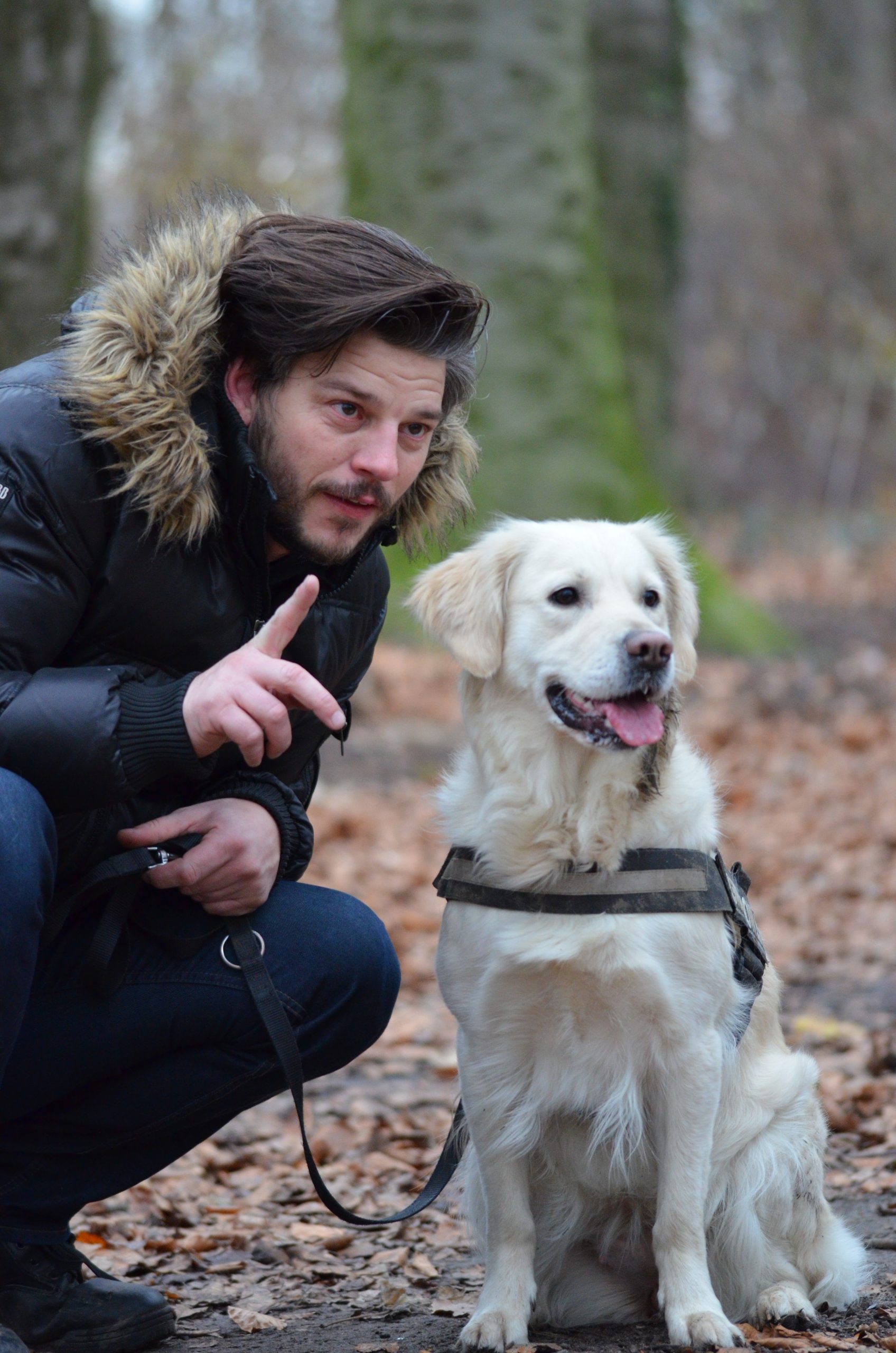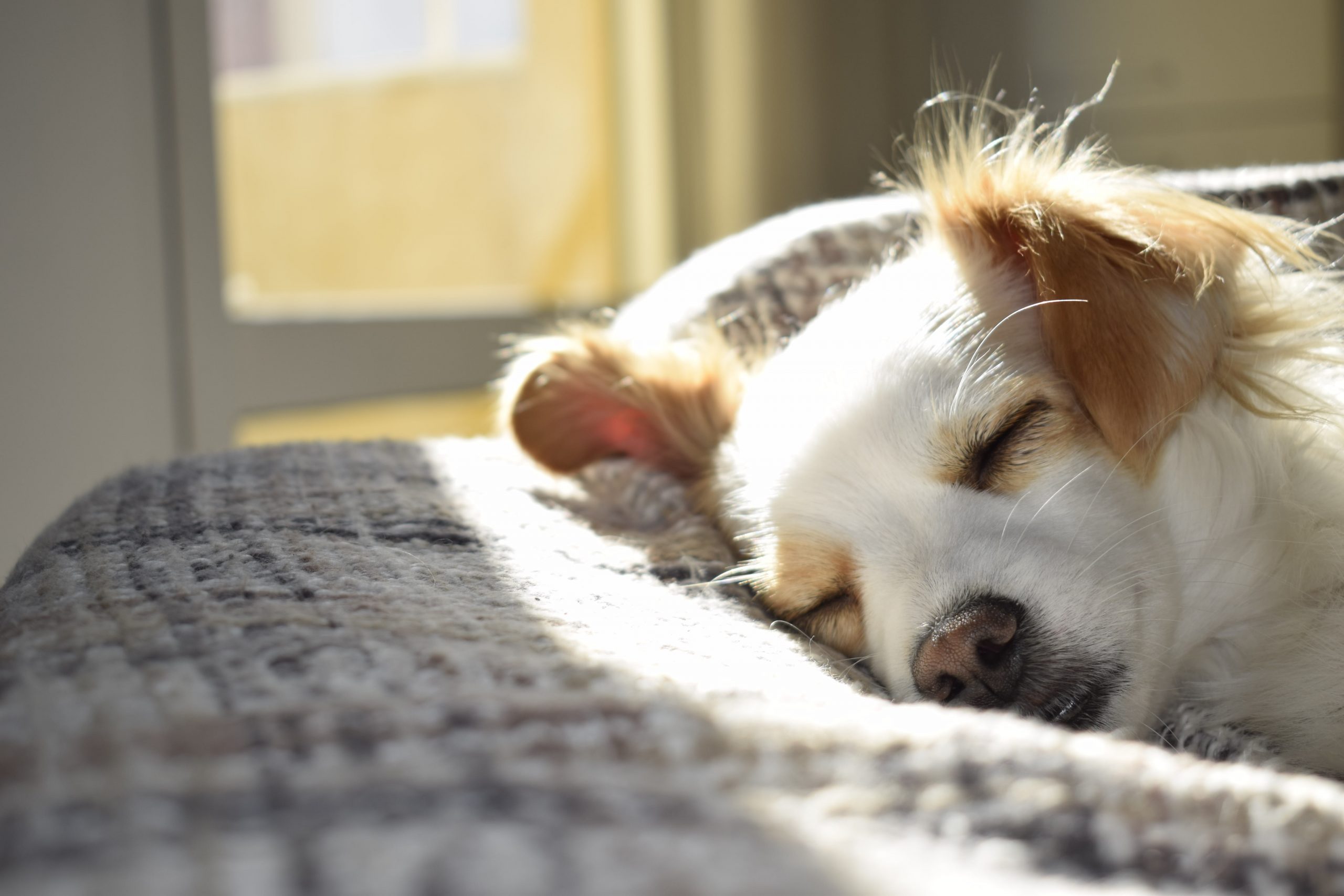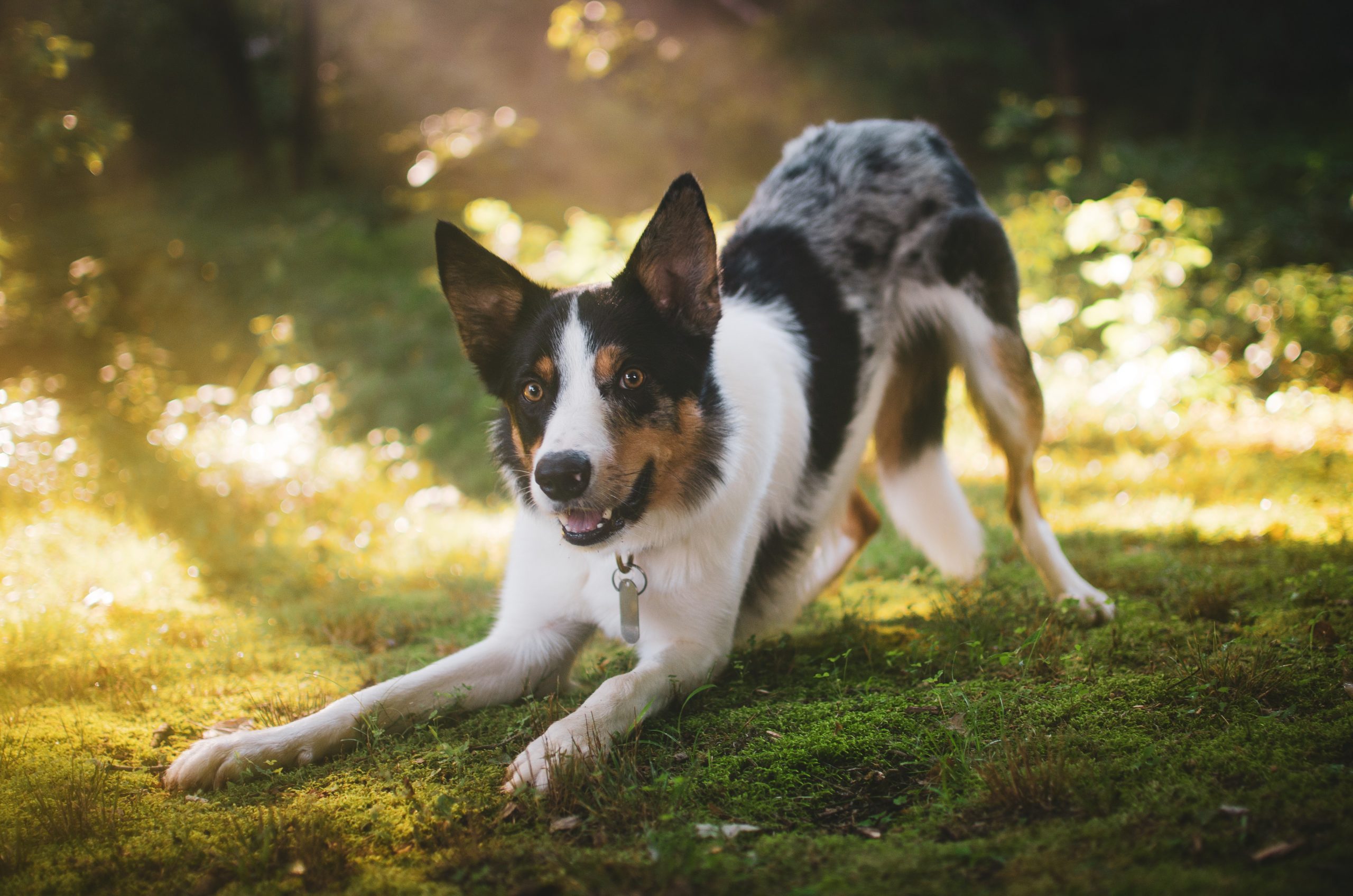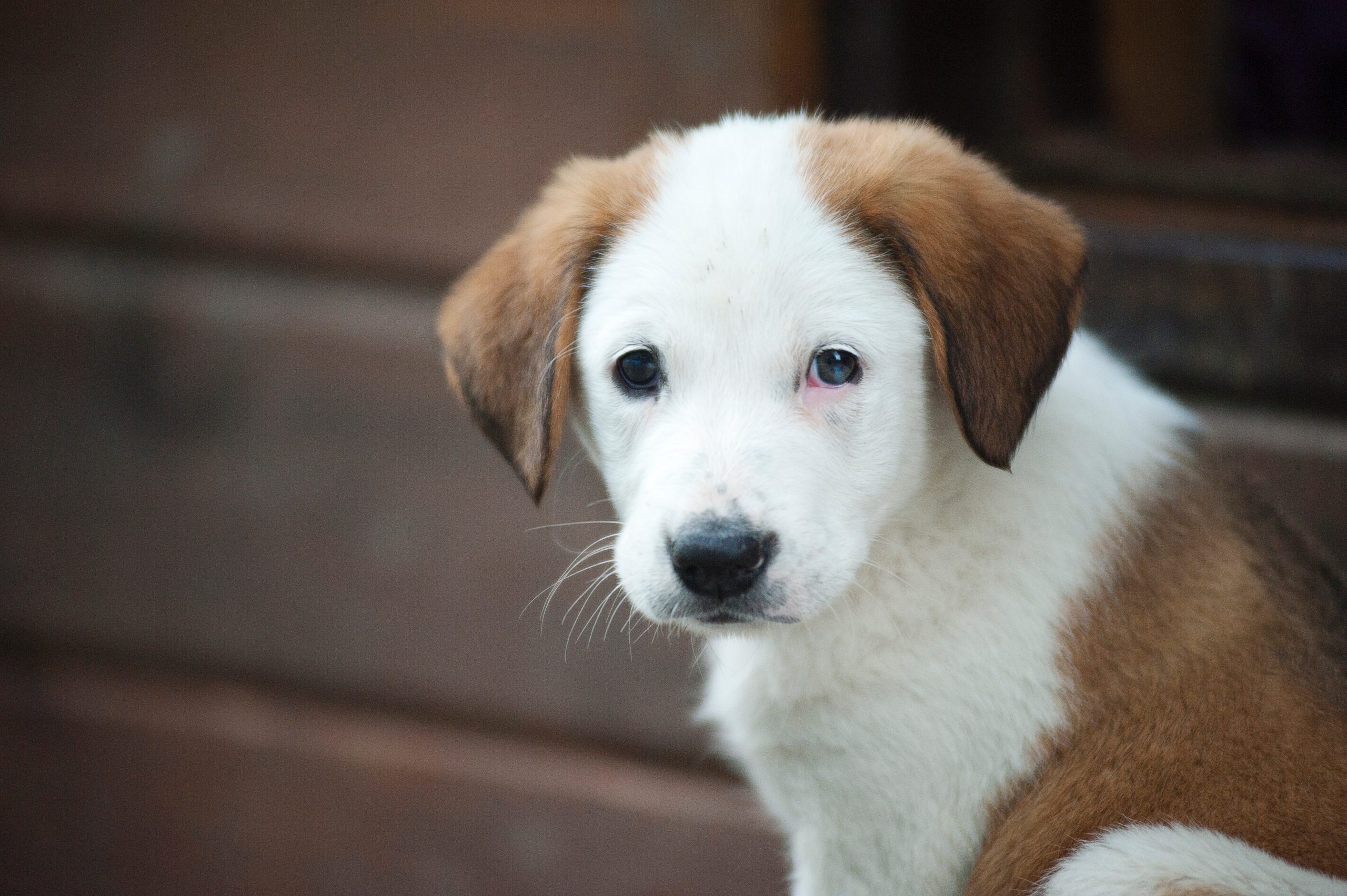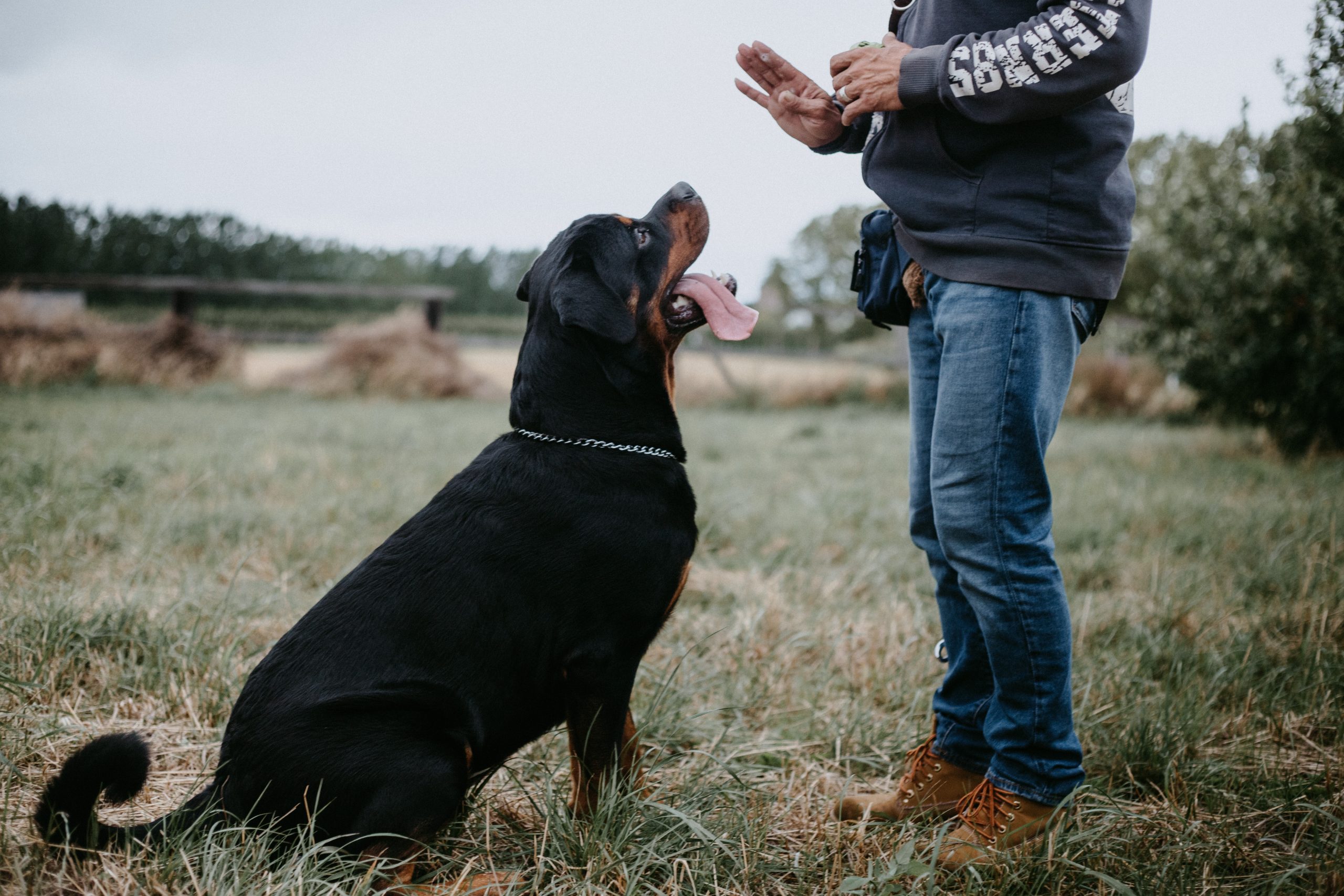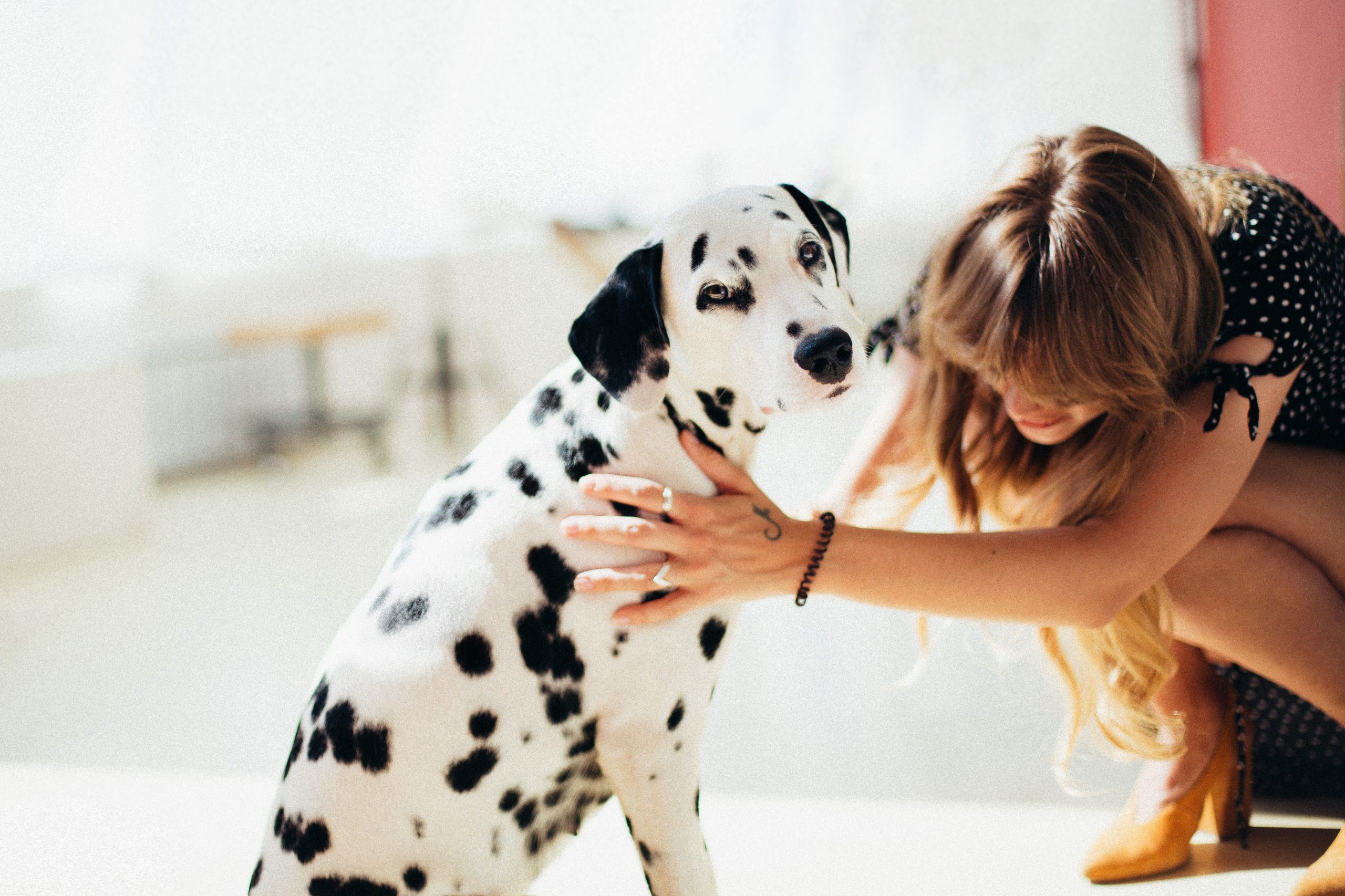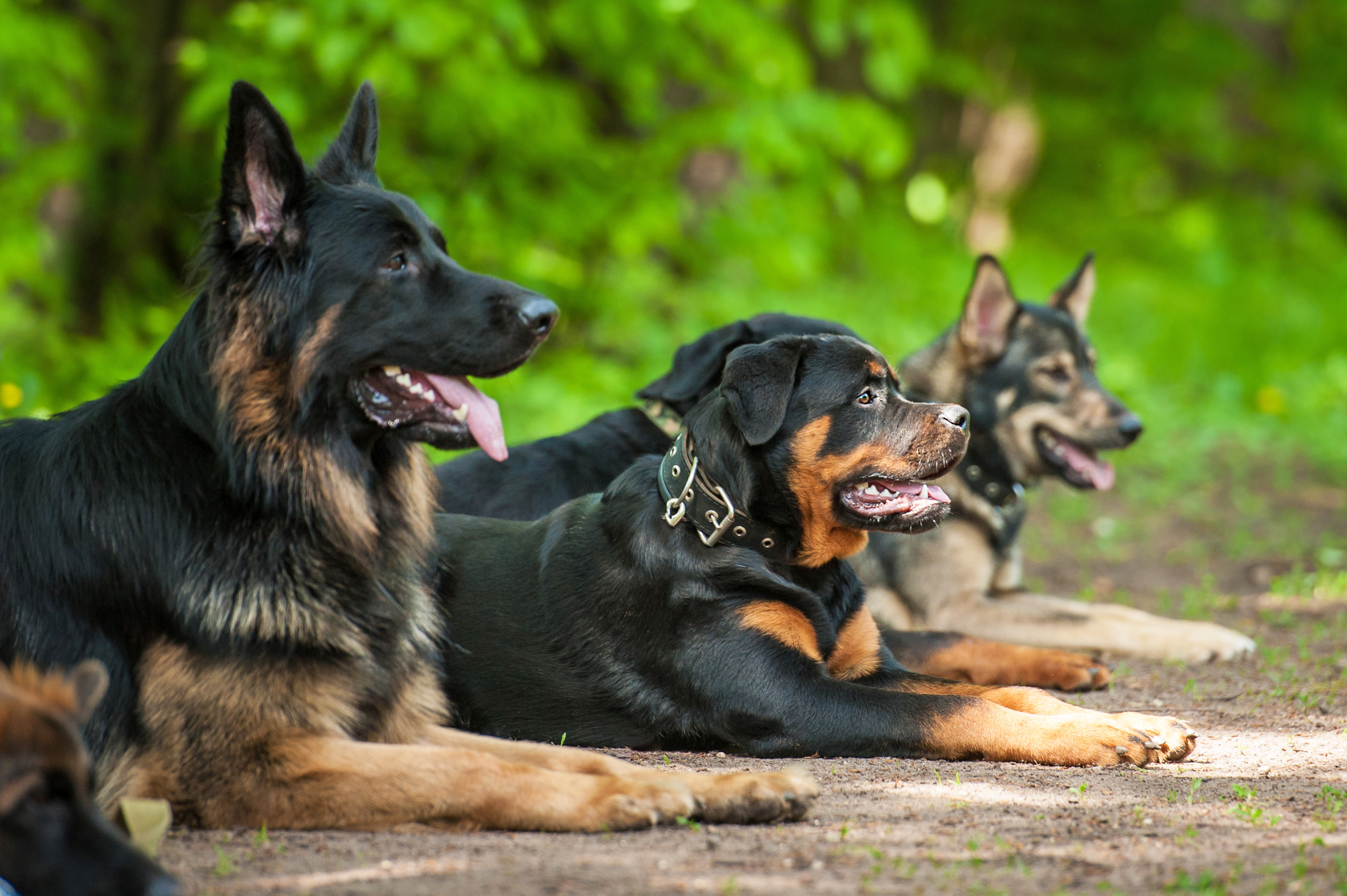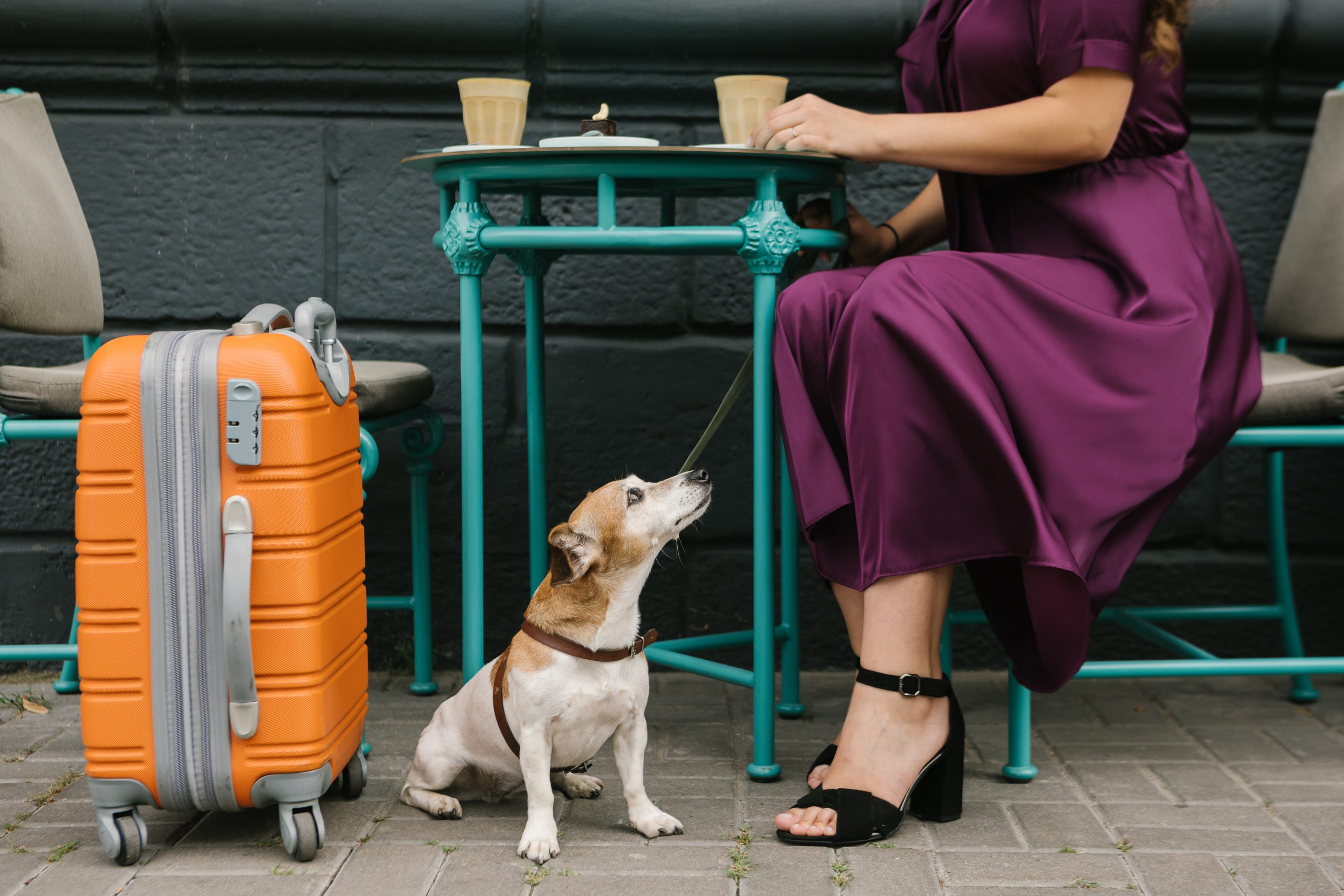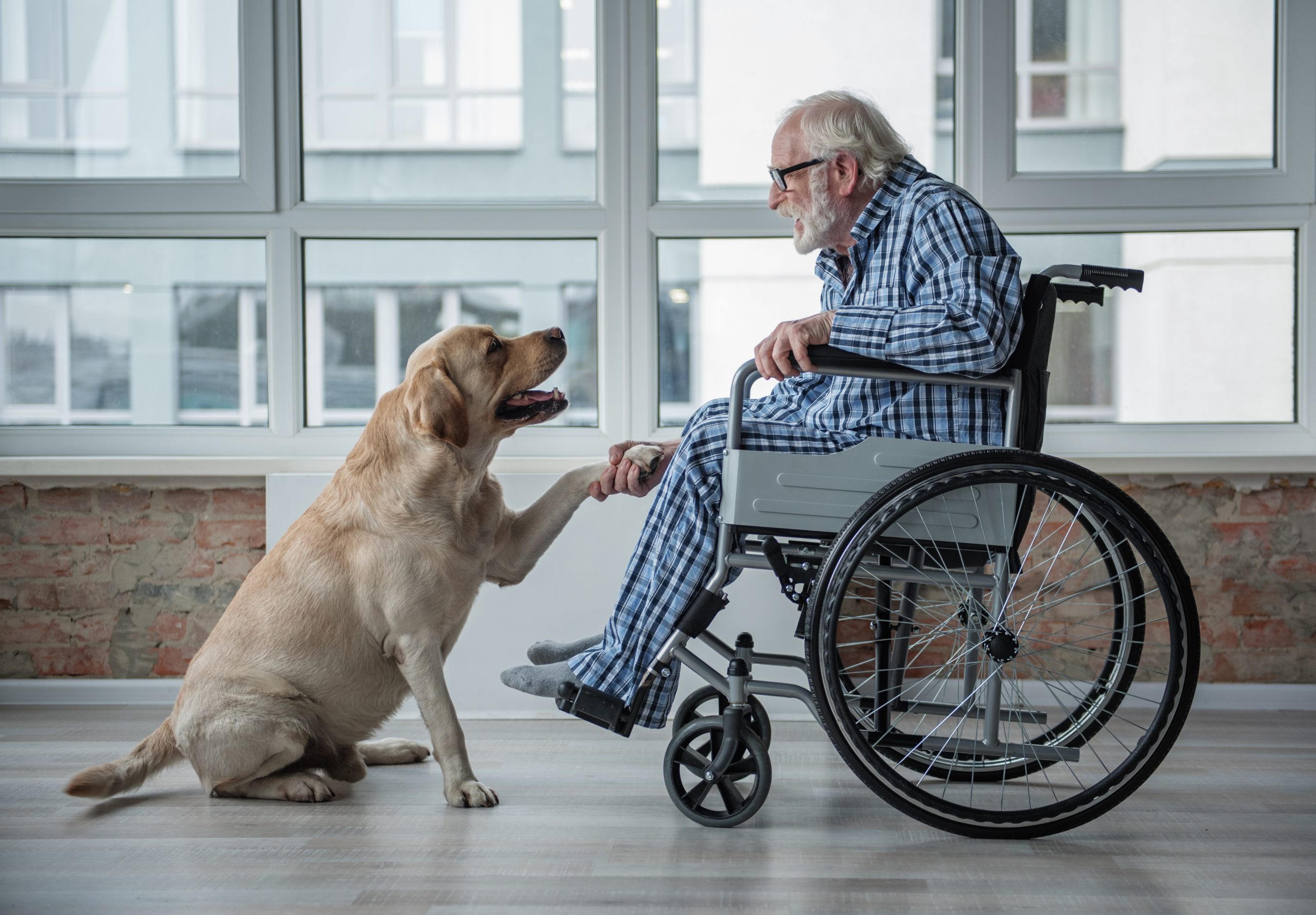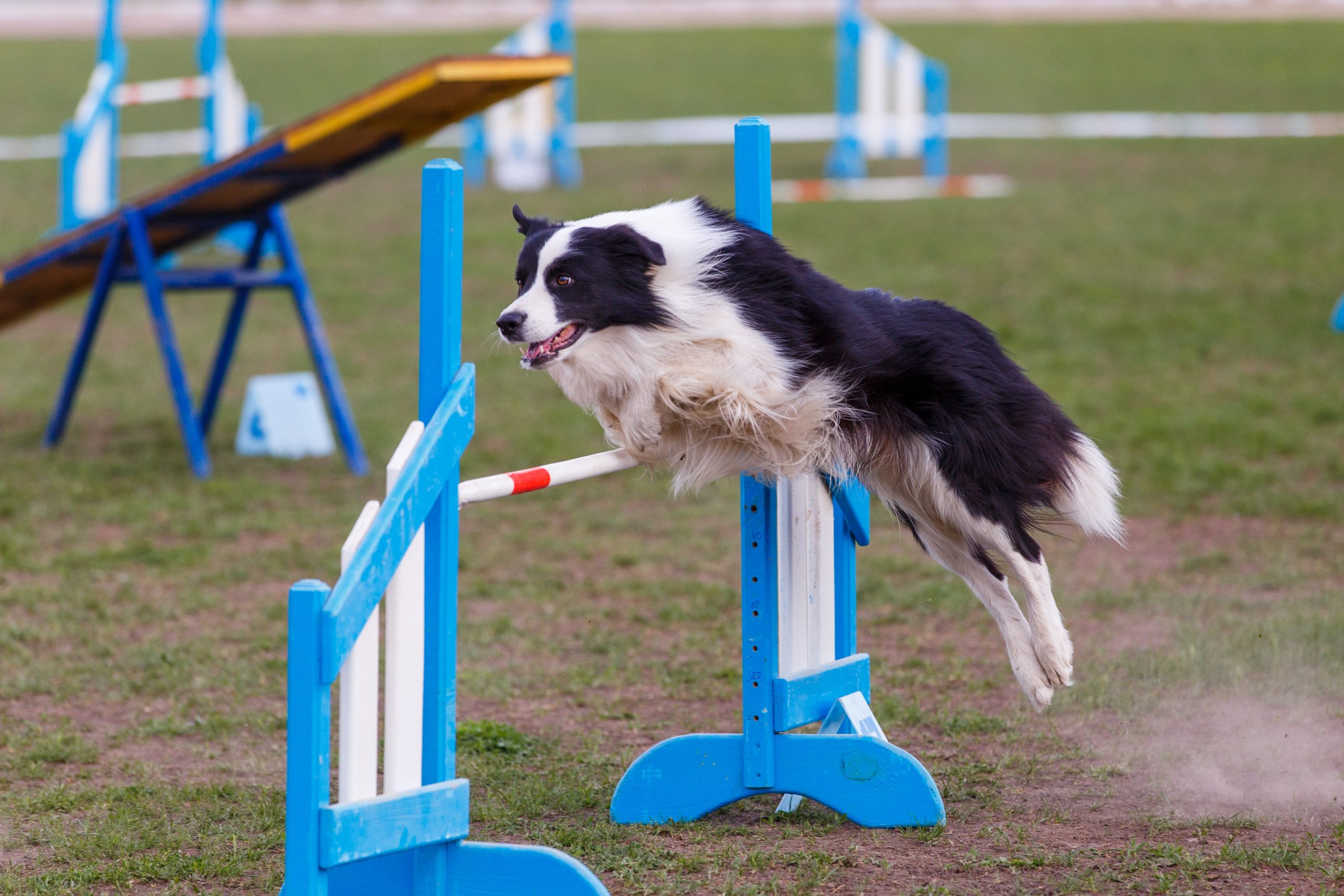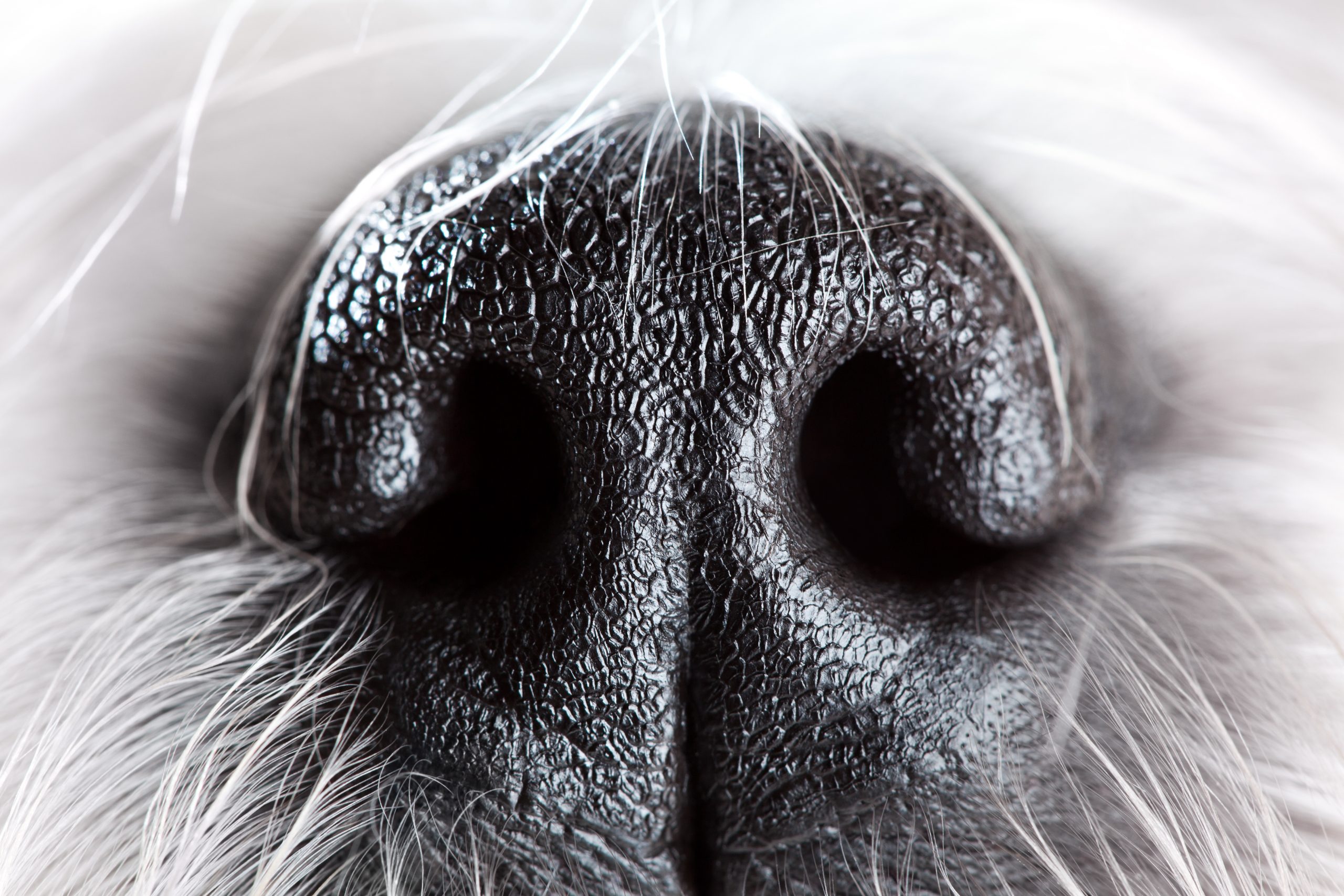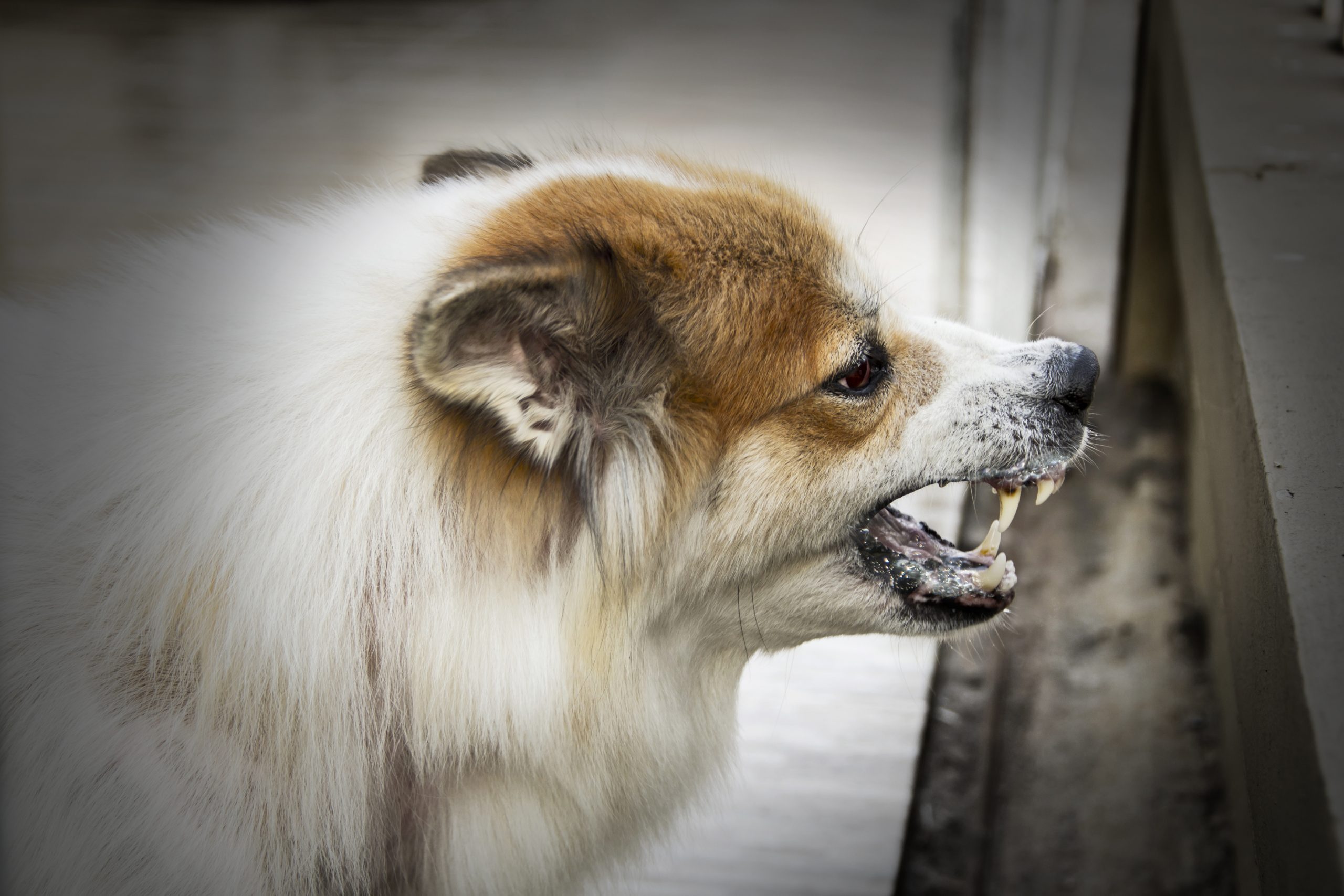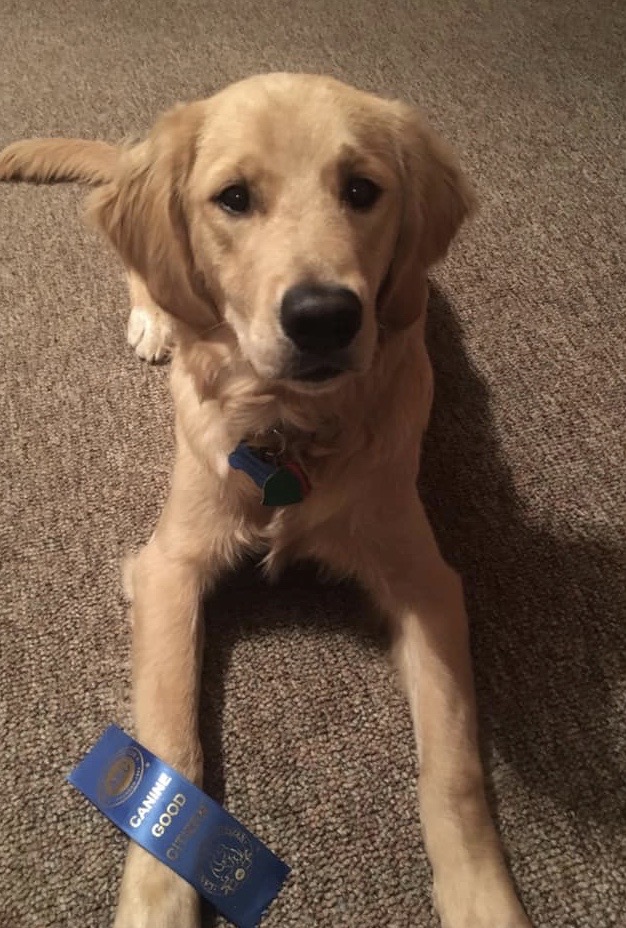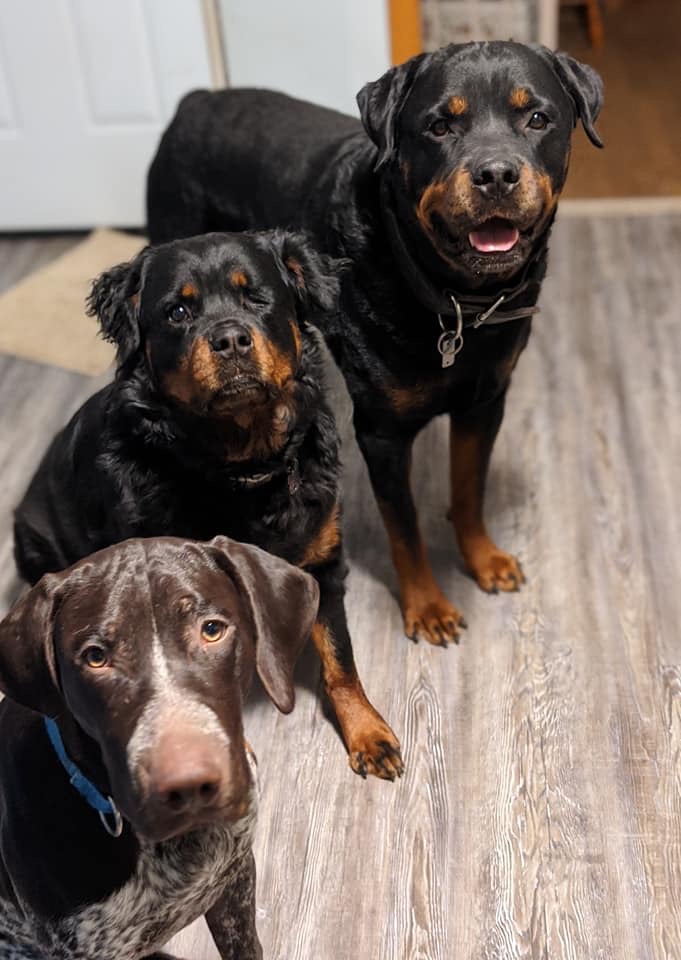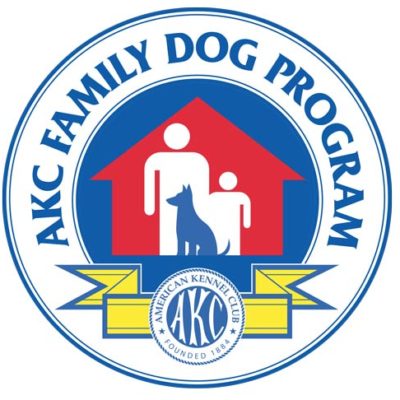AKC Family Dog is a comprehensive good manners program for all dogs. While participating in enjoyable activities that are fun for both dogs and people, dogs become well-socialized and develop a lifelong bond with their owners.
Within the AKC Family Dog organizational umbrella are programs that teach family members how to best communicate with their dogs. The CGC programs (AKC S.T.A.R. Puppy, Canine Good Citizen, and AKC Community Canine and Urban CGC) begin with teaching basic skills such as sit, down, and come and they build on these skills as dogs move from one activity to the next. The result is a dog that any owner can be proud to take into the community.
The AKC Family Dog Program obedience track consists of:
S.T.A.R. Puppy
The AKC S.T.A.R. Puppy is an exciting new program designed to get dog owners and their puppies off to a good start. The AKC S.T.A.R. Puppy Program is an incentive program for loving dog owners who have taken the time to take their puppies through a basic training class.
Training classes teach you how to best communicate with your puppy. Organized training classes also provide an opportunity for your dog to socialize with other dogs. In classes aimed at earning the AKC S.T.A.R. Puppy distinction, you’ll be able to get information on all of your puppy-raising questions including housetraining, chewing, and the most effective way to teach practical skills such as coming when called. AKC S.T.A.R. Puppy training is a natural lead in to the AKC® Canine Good Citizen® Program.
When you complete a basic training class (taught by an AKC Approved CGC Evaluator) with your puppy (up to 1 year old) your puppy is eligible to be enrolled in the AKC S.T.A.R. Puppy Program.
You’ll attend any puppy or basic training class at least 6 weeks. Your instructor will administer the AKC S.T.A.R. Puppy test at the end of the course. Upon passing the test, you’ll get an application to send to AKC® for enrollment in the AKC S.T.A.R. Puppy Program. All dogs are welcome to participate in the AKC S.T.A.R. Puppy Program including purebreds and mixed breeds.
Your puppy will receive the AKC S.T.A.R. Puppy Medal (for display or memento purposes; not suitable as a collar tag). You and your puppy will be listed in the AKC S.T.A.R. Puppy records. In addition, so that you can continue learning, you’ll receive our AKC S.T.A.R. Puppy package that includes:
- A beautiful, frameable certificate designating your puppy is in the AKC S.T.A.R. Puppy records at AKC
- AKC Puppy Handbook, a valuable resource
- Ongoing Monthly Email Newsletter: Your AKC. This includes training tips and up-to-date information every dog owner needs to know.
Canine Good Citizen
Started in 1989, the AKC’s Canine Good Citizen program is the gold standard of behavior for dogs in our communities.
The CGC award is a prerequisite for many therapy dog groups, some homeowner’s insurance companies encourage CGC testing, and an increasing number of apartments and condos require that resident dogs pass the CGC test. The tagline of the CGC program is, “Responsible Owners, Well-Mannered Dogs,” and that is what CGC is all about.
The heart of the CGC program is the 10-step Canine Good Citizen test. At the beginning of the CGC test, handlers sign the Responsible Dog Owner’s Pledge before taking their dogs through the 10 step test with an AKC Approved CGC Evaluator.
CGC Test Items—
- Test 1: Accepting a Friendly Stranger. The dog will allow a friendly stranger to approach and speak to the handler (the dog owner) in a natural, everyday situation.
- Test 2: Sit Politely for Petting. The dog will allow a friendly stranger to pet it while it is out with the handler.
- Test 3: Appearance and Grooming. The dog will permit someone to check its ears and front feet, as a groomer or veterinarian would do.
- Test 4: Out for a Walk (walking on a loose lead). Following the evaluator’s instructions, the dog will walk on a loose lead (with the handler/owner).
- Test 5: Walking Through a Crowd. The dog will walk through a small crowd of pedestrians, passing in close proximity to at least three people.
- Test 6: Sit and Down on Command and Stay in Place. The dog must demonstrate sit AND down on command, then the owner chooses the position for leaving the dog in the stay.
- Test 7: Coming When Called. The dog will come when called by the handler (from 10 feet away on leash).
- Test 8: Reaction to Another Dog. The dog will behave politely around other dogs. Two handlers and their dogs approach each other from a distance of about 20 feet, stop, shake hands and exchange pleasantries.
- Test 9: Reaction to Distractions. The evaluator will select and present two distractions such as dropping a chair, etc.
- Test 10: Supervised Separation. This test demonstrates that your dog can be left with a trusted person. The evaluator will hold your dog’s leash while you go out of sight for three minutes.
Community Canine
AKC Community Canine is the advanced level of AKC’s Canine Good Citizen (CGC) program.
As with CGC, AKC Community Canine has a 10-step test of skills that dogs must pass to earn the official AKC Community Canine title. This is a title that appears on the dog’s title record at AKC.
All skills on the test are tested on leash. The AKC Community Canine (CGCA) test may be done in a class, at shows, in pet stores or in the community. When the test is administered in community settings such as at a business or special event, evaluators must have the necessary approval of the business owners, etc.
While Canine Good Citizen tests are simulations of real world skills, (e.g., dog/handler walks through a “crowd” of evaluators in a ring), the goal of AKC Community Canine is to test the dog’s skills in a natural setting. For example, rather than the dog being tested in a ring, in AKC Community Canine, the “walks through a crowd” test item will involve the dog walking through a real crowd at a dog show, on a busy sidewalk, in a therapy dog setting, or at a training club.
To earn the AKC Community Canine title, dogs must meet the following two requirements:
- Must already have a Canine Good Citizen (CGC) award or title on record at AKC.
- Must have an AKC number of one of 3 types (AKC registration number, PAL number, or AKC Canine Partners number). All dogs, including mixed breeds, can get an AKC number. The reason for the AKC number requirement is that this is how we create titles at AKC; we attach the titles to the dog’s number.
Dogs must pass all 10 items of the test to receive the CGCA title.
- Dog stands, sits or lies down and waits under control while the owner:
- sits at the registration table and fills out paperwork, or,
- if the test is done in the community, dog waits while the owner sits and has a snack or visits with another person (e.g., at a park)
- Walks on a loose leash in a natural situation (not in a ring) — does not pull.
- left turn
- right turn
- stop
- fast and slow pace
- Walks on loose leash through a crowd:
- at a show or in class, this item is tested in a real crowd, not in a ring
- in the community, dog walks on sidewalk, through a crowd at a community fair, park, on a trail, through a busy hallway, etc.
- Dog walks past distraction dogs present; does not pull.
This item may be tested along with #3 if there are dogs in the crowd, etc.- at a show or class, dog walks by dogs waiting in the crowd–dogs 2 ft. apart
- in the community, dog walks by other dogs on a trail, sidewalk, in a hallway, etc.
- Sit — stay in small group (3 other people with dogs).
Owners and dogs are in an informal circle/square while owners have a conversation.
Dogs are all on the owner’s left side, on leash; 3 ft. apart. (At least 30 seconds) - Dog allows person who is carrying something (backpack, computer bag, etc.) to approach and pet it.
“May I pet your dog?” (Item is placed on floor/ground before the person pets the dog) - “Leave it.” Dog walks by food and follows owner instructions, “Leave it.”
This can be food placed by the evaluator on the floor or ground in a food dish with a wire cover as in Rally. - Down or sit stay — distance (owner’s choice).
Dog is on 20–ft line, owner walks away with back to dog, picks up an item (e.g., backpack, training bag, clipboard, folder etc.) placed on the floor/chair/ground by the evaluator and returns to the dog. - Recall with distractions present (coming when called). Handler goes out 20–ft. **(off center) and calls dog.
Dog is on the 20–ft. line from #8 above. - Dog will sit or stand stay (owner’s choice) while owner enters/exits a doorway or narrow passageway. Owner calls dog through door when ready.
Owner may also choose to:
Whichever method is used, the dog must not pull the owner and must be under good control. Think of the handler having the leash in one hand and a cup of coffee in the other.
Doorway or gate can be real or simulated with ring gates, two chairs, or a natural passageway (e.g., entrance to trail) in the community.- send the dog through first and have the dog wait for the owner, or
- the owner may choose to have the dog go through the doorway at the owner’s side.
Urban CGC
AKC Urban CGC is a title in the Canine Good Citizen family of awards and titles that also include AKC S.T.A.R. Puppy, Canine Good Citizen and AKC Community Canine.
AKC Urban CGC requires that the dog demonstrate CGC skills and beyond in an urban setting.
As with Canine Good Citizen, AKC Urban CGC has a 10-step test of skills that dogs must pass to earn the official AKC Urban CGC title. This is a title that appears on the dog’s title record at AKC.
All skills in the test are tested on leash. AKC Urban CGC should be administered in a place where there are cars, streets to be crossed, noises, and distractions. This test is administered in the real world; it should not be simulated in a ring at a dog show.
When test items (such as riding on an elevator) are administered in public buildings, the buildings must be dog friendly or evaluators must have permission in advance from the business owners, managers, etc.
The goal of AKC Urban CGC is to test the dog’s skills in an urban (city) setting.
To earn the AKC Urban CGC (CGCU) title, dogs must meet the following two requirements:
- Must already have a Canine Good Citizen (CGC) certificate or title on record at AKC. While the CGC and CGCU may be tested on the same day, the dog owner should request the CGC first. After receiving the CGC certificate, the CGCU can be applied for.
- Must have an AKC number of one of 3 types (AKC registration number, PAL number, or AKC Canine Partners number). All dogs, including mixed breeds, can get an AKC number. The reason for the AKC number requirement is that this is how we create titles at AKC; we attach the titles to the dog’s number.
AKC Urban CGC Test Items
- Exit/enter doorway with no pulling in dog-friendly buildings. Exit building to start test, additional Public buildings items are below.
- Walk through a crowd on a busy urban sidewalk.
- People come toward the dog from 1-ft. away
- Tolerate distractions (people wearing hats, coats, men, women, etc).
- Appropriate reaction to city distractions. This includes movement, noises, and walking on a variety of surfaces. Examples:
- Noises: horns, sirens, construction noise, etc.
- Moving objects: skateboard, bike, carts, person running
- Surfaces: concrete, grass, grates, plastic tarp, wet sidewalk
- Crossing street: Stop at corner, stand or sit to wait and cross with no pulling (on leash, with owner). Crosses street under control.
- Ignore food on sidewalk. (Dropped food, or cups, bags, cans, in which food was wrapped).
- Person walks up and pets the dog. May be carrying an item such as a small dog in a bag, a computer bag, etc. Person does not put the bag down to pet the dog.
- Public Building (that is dog friendly). Walks under control in building (slick surface, carpeted floor). Down stay (3 min) in lobby or outdoor area, or waits while owner has a meal or snack.
- Stairs, steps, or elevator under control.
- Steps (at least 3 – up and down)
- Elevator (Enters under control, exits, rides under control)
- Housetrained for apartment, condo, city living. Owner may verify this item. Evaluator may also observe in public buildings, or have observed in training classes.
- Transportation. Owner’s choice depending on transportation needs.
- Car. Enters/exits, remains under control during the ride. (Crate? Seatbelt?)
- Subway. Small dog in bag for ride. (large dogs are not always permitted; know and abide by the Transit Policies in your area).
- Dog friendly (enters/exits or allows to be put in/taken out) under control.
To pass the CGCU test, dogs must pass all 10 items of the test.
The AKC Family Dog Program tricks track consists of:
There are four AKC Trick Titles you and your dog can earn:
- AKC Novice Trick Dog (TKN)- Your dog performs 10 skills from the Novice list. If a dog has a Canine Good Citizen (CGC) certificate or title on record at AKC, it can do 5 Novice tricks (CGC + 5) to earn the Novice title.
- AKC Intermediate Trick Dog (TKI) – Your dog must have the Novice title, plus perform 10 Intermediate tricks.
- AKC Advanced Trick Dog (TKA) – Your dog must have the Intermediate title, plus perform 5 tricks from the Advanced list.
- AKC Trick Dog Performer (TKP) – In this title, handlers perform a short routine with at least 10 tricks previously learned.
